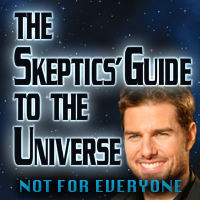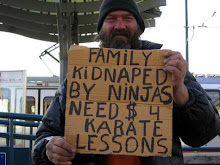I hate idiots. In particular, I hate idiots who promote this “War on Christmas” crap. Admittedly, a lot of the target audience for that stuff aren’t stupid; they are just ignorant of the origins of all their “eternal traditions from the beginning of time,” and how young most of those traditions actually are. Most of the people actually advancing the culture war crap know all this stuff; they’re just playing to an audience that doesn’t.
We’ll set aside the whole “savior half-god born of a virgin signified by a star in the sky” thing, as that’s a whole other round of cultural theft. Suffice to say, Yeshua bin Yosef ain’t the first in line for that story by a couple of millennia. Anyway…
First off, solstice celebrations have been around since people realized that the seasons changed. I can’t point to many ancient cultures that didn’t have one. The ancients liked them a party, too. This was the “last bash before the long dark winter” sort of thing, when you had eat all the stuff that you couldn’t store and make all the religious observances that were needed to ensure the spring would come. Lots of our “modern” holiday traditions have their roots in old-school paganism. Hell, the Christian bible specifically prohibits bringing in trees for the solstice as a pagan observance.
And that’s just one example. Talking about "Yule" is all about sacrifices and hunts and about moving from one season to the next, and is a Northern European tradition. Holly and mistletoe are deeply significant in old Celtic and other pagan religions. While the exchanging of gifts actually follows from the Christian story, they are by far not the only solstice celebration with a similar tradition.
A second round of issues stems from the fact that the only reason the “Christ Mass” is located at the winter solstice was when the old Roman church tried to co-opt the other celebrations going on at the same time. The Roman celebration Saturnalia just happened to be at the solstice, and it was a real party, from all accounts. Wild bacchanals, orgies, massive parties of all types; without something to compete, the early church was at a disadvantage. So, in response, they basically said, “Oh, yeah, our god was born around now, too. Woohoo!” This, despite the fact that from their own descriptions, the birth time was likely somewhere in the spring. Until then, Christmas was a fairly minor event; it was just another named day in the church calendar, like Michaelmas. It got scaled up to compete with other prevalent religions, and in the process, co-opted some of their aspects. These aspects were much more evident in the middle ages. The holiday tradition of wassailing (precursor to modern caroling) was basically a bunch of revelers going from house to house demanding food and drink. That’s no so much what the Christmas Warriors would like us to think the holiday was about. Other pagan observances continued, as well.
As we approach the modern era, Christmas diminishes even further in importance, particularly for the Protestant denominations. In early colonial America, groups such as the Puritans repeatedly outlawed it as a thinly veiled pagan festival. By the Revolutionary period, it was virtually uncelebrated beyond a household level. This changed due to Queen Victoria’s choice of husband. Victoria married a member of the German royalty of the house of Saxe-Coburg, who brought with him to England a mass of holiday traditions. Christmas was still celebrated across continental Europe, but it looked a lot more like Saturnalia than Easter. Yes, the church was treating it as a pretty major holiday, but the populace still ended up treating it like any other solstice celebration. Traditions such as the Christmas tree, Yule log, and general holiday decoration carried into the British royalty; as Victoria was the standard for behavior in the Empire, these traditions spread as the fashionable thing to do, first among the nobles, then the upper classes, then to everyone else. Combined with the immensely popular work of Charles Dickens, the image of the modern Christmas celebration was born in Europe. This eventually carried over to the United States, the citizens of which were just as crazy about emulating Victoria as anyone else at the time. And, ultimately, because of that emulation, Christmas as it is understood in the English-speaking world is little more than a thin veneer of whitewash over much older pagan customs. Even at the point that the U.S. established it as a holiday in the mid-19th century, it was done so in purely secular terms. Once twentieth-century commerce and marketing got involved, the revels were in full swing, and they had nothing to do with religion.
So, knowing all that, it’s hard to take seriously anyone who thinks that Christ actually had much of anything to do with our modern understanding and celebration of Christmas. Admittedly, a lot of people don’t know this; I can’t blame the ignorant for having a different understanding (though I can blame them for not understanding the history of their own damned religion). The ones that get to me are the people who know this perfectly well, and ignore that knowledge in favor of exploiting the ignorance of the former group. That pisses me off. While I’m not a religious believer, I still get angry at the manipulation of those that do believe. What bug me are the con artists sidling up to the average believer and saying, “That guy over there? He’s trying to keep you from even mentioning Christmas. It’s because he’s afraid of Jesus, and wants to drive him out of the public square. That way the devil will win. By the way, I have a TV show and a book where I talk about all this, maybe you should check them out, if you love Jesus, that is.”
It’s that kind of thought that drives me buggy. Nowhere has anyone ever tried to legally stop anyone from saying “Merry Christmas”. Sure, the majority of people in the US (religious or not) celebrate Christmas, and it’s appropriate to greet them that way. However, a significant minority celebrates other holidays or none in the same period. Recognizing this, many businesses use the term “Happy Holidays” so as not to make an inappropriate greeting to a sizeable chunk of their customer base. Many individuals do the same out of common courtesy, because you don’t know the affiliation of everyone you speak to. Hell, I didn’t realize one of my friends in school was Jewish until he left out of a conference to go to his Bar Mitzvah. A sizable chunk of the people around here are Jehovah’s Witnesses, who don’t celebrate holidays in this manner. Throw in Muslims, adherents of the many varieties of Hindu faiths, Zoroastrians, etc, and there are frankly a lot of people to whom, “Merry Christmas” just doesn’t apply. And that, frankly, is great.
See, the United States is supposed to be a place for anyone who loves freedom, and wants a chance to be something. To facilitate that, we have a Constitution and Bill of Rights that guarantee equal protection under the law, regardless of extraneous factors like religion. Such guarantees are a protection of the minority from the tyranny of the majority (something many Jews and minority religionists can historically point to, given the history of state-sponsored pogroms and persecution throughout the nations of Europe that had official churches). While many may complain that this can result in a “tyranny of the minority,” I’ve never understood the idea. Ensuring that everyone has at least equal rights to belief and expression means that you can’t mandate or favor one over any other (or even none); that’s not a “tyranny”. The way we half-ass it in this country still barely makes it a “plurality”. However, many in a majority won’t see it that way. That’s where this “War on Christmas” comes in; rather than accommodate and be pleasant to a small minority, a chunk of the majority would rather act like jackasses. That’s what confuses me; no one has ever actually tried to legally stop someone from saying “Merry Christmas”. Sure, businesses may have a policy of using another phrase; that, however, is business, and most companies want to cover as many potential customer bases as possible. It’s the equivalent of being required to say, “Do you want fries with that?” It’s not a constitutional speech issue; it’s a company policy issue. An individual on their own time can “Merry Christmas” their ass off all over the public square.
A final place this comes up as a fight is where it actually becomes a Constitutional issue; government involvement. Usually, this takes the form of holiday displays on public ground, such as a public park or city office building. Since these places are recognized as representing the government, they can’t take a stance favoring or disfavoring a particular religion. That means that any public space allowing for holiday displays that are in any way non-secular (such as a crèche or menorah) must be open to all religions’ holiday displays, as well as secular displays. In effect, where they want to put religious speech, they have to allow all speech (I can’t believe the crapstorm that comes up every year when secularist and humanist groups put up signs essentially saying, “Be cool to each other” next to religious displays). This is, again, to prevent the tyranny of the majority. Even in a town that is 99.99% Christian, the government must not do anything indicating that it disfavors that .01% that isn’t; to do so could indicate that laws will be applied unequally due to religious discrimination. Coralius has a good post from back in the day as to why this is important. The ideal solution is for government functions and spaces to get out of the religious display business and get on with the work of governing. Some people just don’t seem to get that, though, and when you try to make them apply the law equally, cry about “persecution”. It’s not “persecution” to not get special treatment. However, people in the USA seem so ignorant of their own Constitution, laws, and history that they don’t understand what real persecution is. So to them, this is a “War on Christmas”. To everyone else, they just sort of look like idiots. It drives me nuts that people in such a diverse nation can be so provincial; this place is full of amazing and astounding people, and I really hope that the loud-mouthed and ignorant are actually a small minority. Extremists usually get the most press, in any case. The very fact that they have the right to yell about such things warms me. That’s what freedom is about; you have the right to act like an idiot, and I have the right to think you’re an asshole because of it.
Happy Holidays, y’all.
Subscribe to:
Post Comments (Atom)






No comments:
Post a Comment